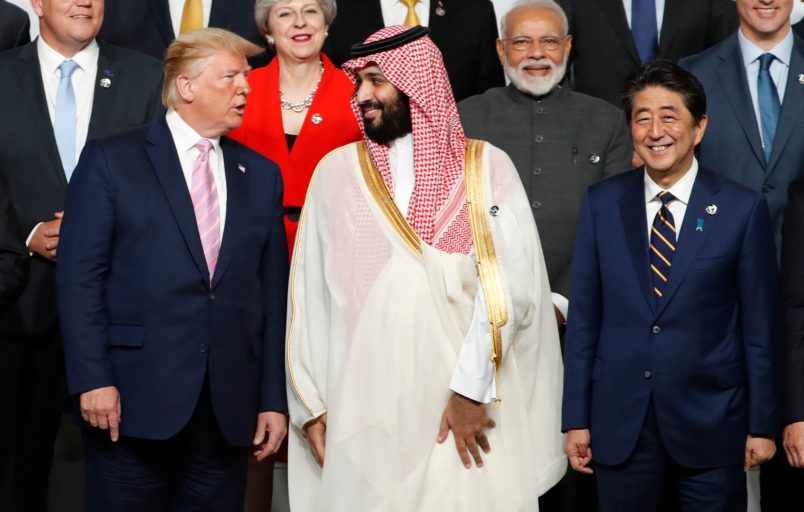Yesterday Rep. Ro Khanna (D) said we should send a message to the Saudis that they change their oil quota decision or face a cut in the military spare parts their U.S.-manufactured army requires to function. This is in the context of new hardball from the White House, which is apparently sending a comparable message. Just a moment ago I saw a tweet from Sen. Dick Durbin (D) saying that it’s time for the U.S. to ditch the U.S.-Saudi alliance. These are things we’ve heard for ages from backbenchers in the House or others distant from the centers of power. They’re close to unheard of for people at the center of power.
This is all driven by a decision which is not only bad for the U.S. (and arguably for the stability of the whole global economy) but also for the Democrats’ near-term electoral interests. So the backlash has many layers of motivation. Democrats also have a clear secondary interest in publicly blaming the Saudis (fairly, I would argue) for whatever near-term impact the Saudi decision might have at the pumps. This might suggest these comments will become dead letters after Election Day. But I don’t think they will. They shouldn’t. It looks like a potential watershed, one perhaps sparked by a single contingent event, but recognizing significantly changed realities.
One can like cold realpolitik decision-making or not. But in realpolitik terms, the U.S.-Saudi alliance used to make a lot of sense. The Saudis needed the US, despite our cultural worlds apart. The US needed them. The Saudis operated for the U.S. as the custodians of the price stability of the global oil supply. They also provided financial support to other U.S. regional allies. We wanted them to provide a steadying hand in relations between Israel and the Arab states. The truth is that both countries now need each other considerably less than in the past. But the Saudis are acting mostly like the relationship is over even though the U.S. mainly is not. Perhaps it’s better to say they are seeing it in purely transactional terms, with very short term clearing of accounts. They are playing hardball with us but we’re not with them.
The other wrinkle in the equation, perhaps far more than a wrinkle, is that the Saudi Royal family, which always generally preferred Republican government in the U.S., is now all in for the Trumpite GOP and to some great degree with the Trump family. The royal family literally invested $2 billion in Trump’s son-in-laws new investment fund, even though no one thinks his experience or credibility merited anything like that. I’ve always been cautious about basing big decisions about Saudi Arabia around the murder of Jamal Khashoggi. It was an awful, awful thing. But the centrality of that event has been vastly amplified by how integrated Khashoggi was in the D.C. policy world and at The Washington Post. But the Saudis, under current management, don’t act like friends. They also play favorites in internal U.S. politics. There are lots of reasons entirely apart from the Khashoggi story to reconsider things.
Alliances have a long half life to them. It’s all deeply embedded in relationships, assumptions about various U.S. interests in the region. Nothing changes overnight. But there are still watersheds. And this may be one of them.
The U.S. should act accordingly. What, Saudi Arabia, have you done for us lately?


 Members-Only Article
Members-Only Article
